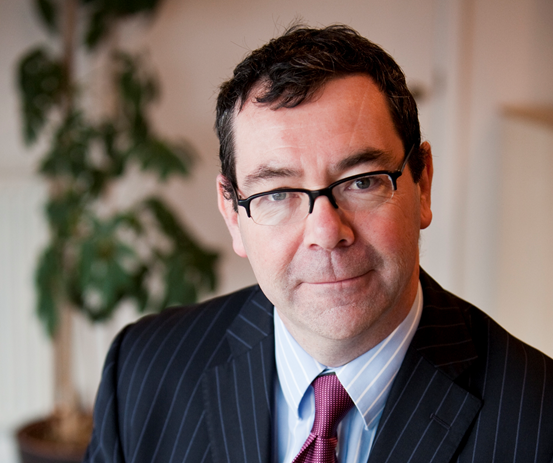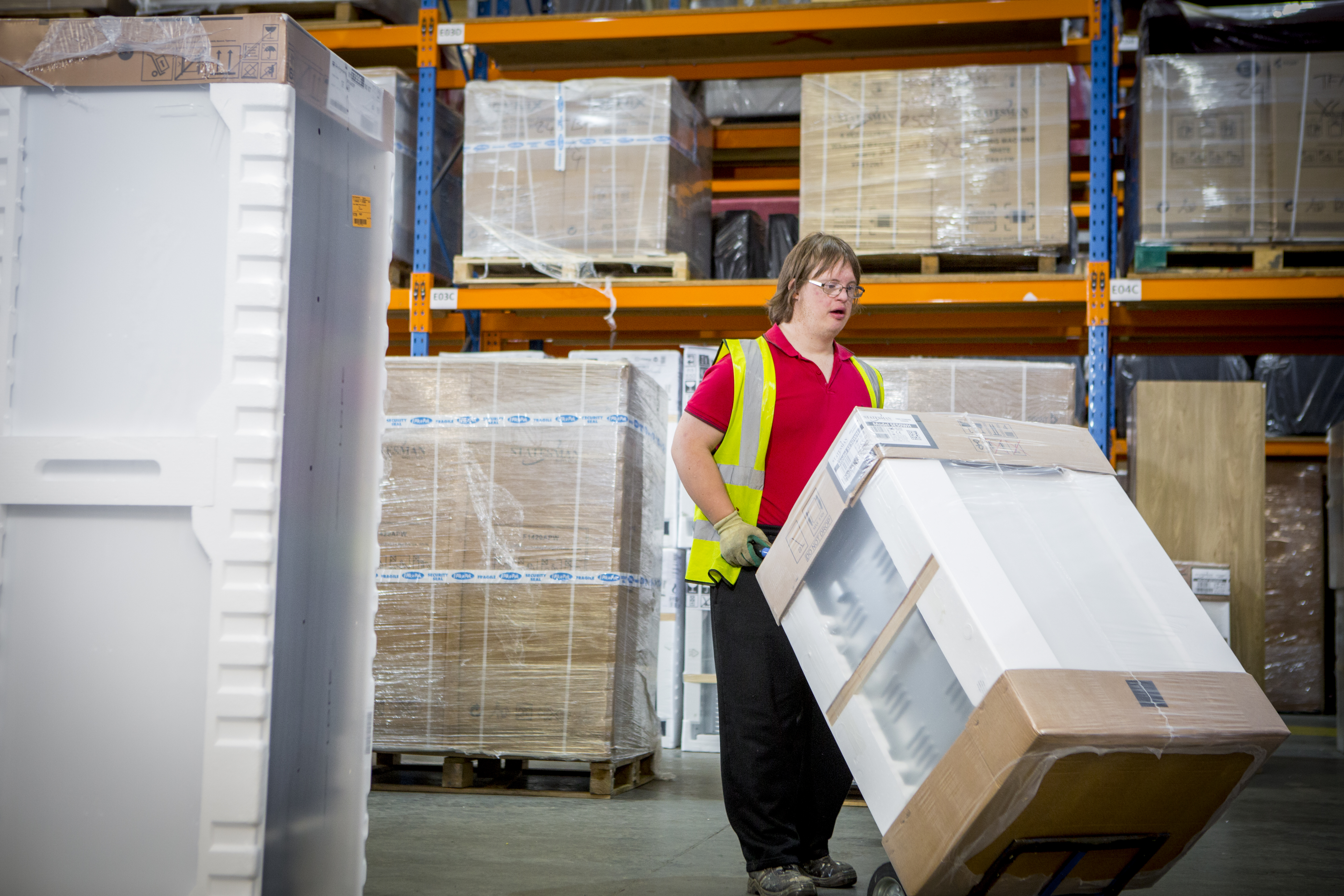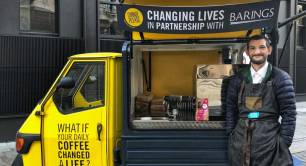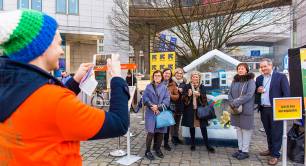'You have got to be brave – as long as you can qualify that risk': award-winning FRC Group boss
What does it take to become an award-winning social business? Shaun Doran, CEO at FRC Group, on being able to spell out your mission in just three words, constant efforts to improve, and taking calculated risks as a route to growth.
 Not many social businesses can boast as many awards as FRC Group, a social enterprise that aims to end furniture poverty through services including redistribution of second-hand furniture to those in need. Since it was founded in 1988, it has delivered furniture to over 100,000 families.
Not many social businesses can boast as many awards as FRC Group, a social enterprise that aims to end furniture poverty through services including redistribution of second-hand furniture to those in need. Since it was founded in 1988, it has delivered furniture to over 100,000 families.
FRC has won more NatWest SE100 Social Business Awards than any other organisation to date, picking up four between 2008 and 2017. Then, in October 2019, it was crowned Social Enterprise of the Year by Social Enterprise UK (and also shortlisted for another four categories).
But success has not always come easy for the business, which is based in Liverpool but operates across England, Scotland, Northern Ireland and Wales.
CEO Shaun Doran told us about some of FRC's hurdles – including reliance on grant funding and an unsuccessful business acquisition – and what it takes not only to overcome them but also to become an award-winning enterprise that's busy sharing what it has learned with other social entrepreneurs.
FRC Group has been around for more than 30 years – what are you most proud of in its recent history?
Over the last year I’m proud of our acquisition of the local authority division of a major competitor, David Phillips. They were similar to us, they provided packages of furniture to social landlords to easily allow them to provide furnished accomodation for people who can’t afford to buy it themselves.
They were backed by private equity and bought into a market they didn’t understand. We bought their portfolio and improved their efficiency, not because we’re a social enterprise, but because we’re more passionate.
The acquisition has put £3m onto our annual turnover, and also increased the impact that we make. They are based in the Greater Manchester area, so it also increased the depth and spread of our impact across the country.
We needed working capital to support us [in the acquisition], and a number of lenders were prepared to lend to us, but in the end we decided to go with CAF Venturesome. The process has confirmed for us that acquisition is an appropriate route for social enterprises to consider. Now we’ve got two more that we’re working through, and we see this as a route to growth.
Acquisition is an appropriate route for social enterprises to consider... we see this as a route to growth
Are there any challenges with an acquisition like that?
Acquiring any business is a challenge. But what potentially made it harder was that we were bringing people from a private company into a social business. Most of us at FRC chose to work for a social business: we signed up for that. But we took on 25 staff along with the acquisition who hadn’t previously worked for a social business or didn’t know what it even was, so it was quite a cultural difference for them.
But we pay Living Wage Foundation salaries across the board, which meant a significant pay bump for most of the staff, which isn’t a bad start…
Why do you think you have won so many awards in recent years?
I think it’s partly because, about three years ago, we put a lot of work into understanding ourselves a little better. We managed to articulate our mission much more clearly: in three words and not three paragraphs. And our new campaigning charity that came from that – End Furniture Poverty – is not just external but a great influence on what we do internally.
Using this term gave us a greater ability to articulate our success, and gave us a clearer filter on what we should be doing rather than what is interesting to do. And that mindset has meant we have started to work with a lot more ambition in the areas that are closest to that mission.
Just measuring things is a fool’s errand. Now, we look at it and say: it good enough?
We also worked on our social value reporting process. For our first 15 years, it was almost disconnected to the business: the business would do what it wanted, then we would report on it. But just measuring things is a fool’s errand. Now, we look at it and say: ‘that’s what we’ve done, and is it good enough? And, what if we did things differently next time?’ It’s not just simply measuring, more of a starting point that allows us to measure. It’s a live measuring tool.
It took us 15 years of getting caught up in the measuring process to work that out. I’d like to think that other social enterprises can learn from our experience, and not just measure social value, but use the reports as a live tool for growth.
You now run masterclasses for other businesses to learn from your experiences – why?
It’s partly to answer the question of what we’re doing for the sector. But we also run them to make money: we charge people to access [them], which creates a surplus to allow us to invest more in ending furniture poverty.
We do offer bursaries for organisations who can’t afford to pay but have convinced us that they have the right attitude. But we want ambitious, realistic people, who are prepared to pay a relatively small amount of money for something that could turbocharge their social enterprise.
If we ran things for free, there would be a lot of bums on seats, but there would be a lot of people who aren't going to be successful, and who are just wasting other people’s time.
Who attends your masterclasses?
Almost everyone who comes wants to find a way to generate earned income. One of the first exercises we do is to look at all of their annual accounts for the past five years, and it is always clear that if grants stopped, there would be a huge deficit. We then work hard on helping them get to a position where they would still be able to operate even when grant funding dries up.
It’s a tough thing. But we’re able to illustrate periods in our 30-year history where we’ve been wholly reliant on grant funding, and what we did to get ourselves out of that position. We know what it's like: the sleepless nights, the redundancies, the panic that goes along with that situation.
What is usually your most important piece of advice for people on the masterclasses?
I think you have got to believe in what you’re doing. But that belief has got to be more than you sitting in a room hoping: there’s a difference between hope and real belief. As an organisation we’re quite confident, because we know we’re brilliant.
You have got to believe in what you’re doing. But that belief has got to be more than you sitting in a room hoping: there’s a difference between hope and real belief
Our last acquisition was an unusual one. We were a small charity going out to a company. But we had enough belief in ourselves to hold our own. And if you don’t have that belief you’re not going to get anywhere. If you walk into something knowing it's going to happen, it probably will. If your approach is “ooh, not sure”, it’s probably going to be a self-fulfilling prophecy.

And what has been a learning for FRC Group over the past 30 years?
One of our core values is bravery. You can batter yourself into a corner where you keep thinking about the risks that can happen, but you do need to show bravery – as long as you can qualify that risk.
We know more than ever now about the limits of our experience, and we’ve found that our stretch is less than we previously thought it to be. About 10 or 15 years ago we took on the first Ben and Jerry’s ice cream franchise outside of the US. And that was where we’d overreached. We found out very quickly how expensive it was to run an ice cream shop to their standards, and how little we knew about ice cream.
Now we are ambitious and do new things, but only new things that are in the skill and experience set that we have. And a lot of that is around furniture. For example, for many years now we’ve been providing furniture to housing associations through renting furniture as a package along with the property for people who can't afford it themselves.
Then, five years ago, we expanded our business to sheltered accomodation, care homes, and student accomodation, which had a different customer base. This stretch to incorporate new types of furniture was a qualified risk worth taking, and now Buckingham Interiors is a very successful part of FRC group. So it’s about understanding what you’re good at, and what you’re not good at.
We will be announcing the SE100 list and winners soon (event on 26 March 2020 has now been postponed, details to be announced soon). More questions? Get in touch.
Interview slightly edited for length and clarity. Photo credits: FRC Group.
EDITOR'S NOTE (03/02/2020): Shaun's answer to question 1. has been updated to clarify that the acquisition refers to David Phillips' local authority division only.



